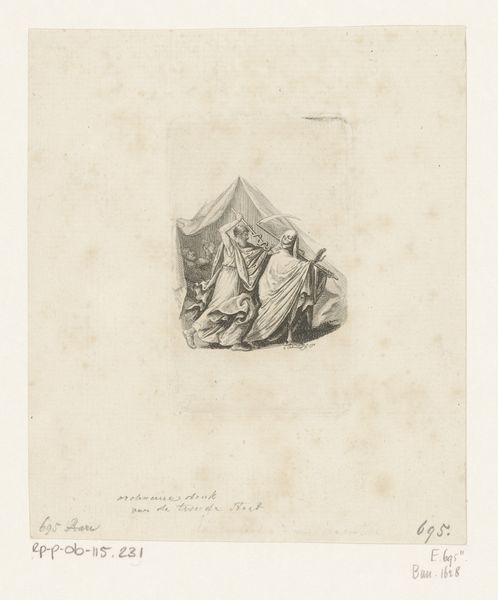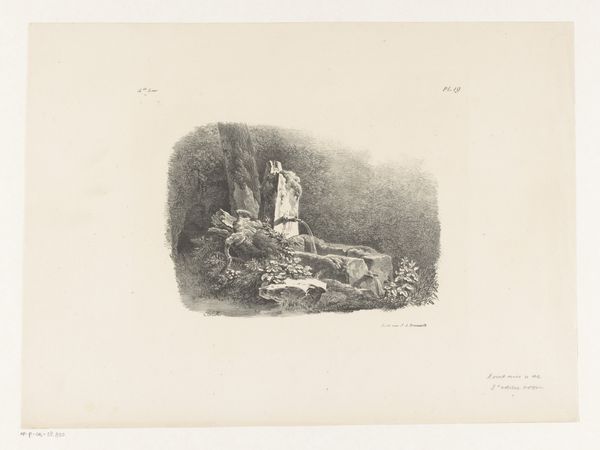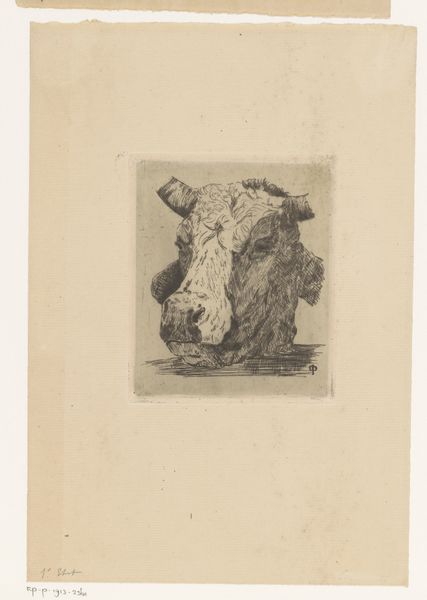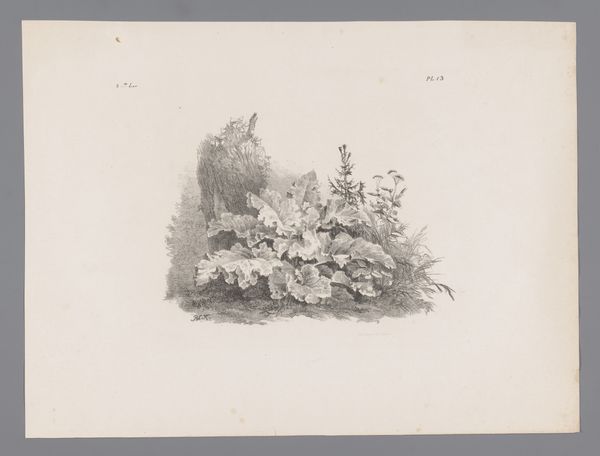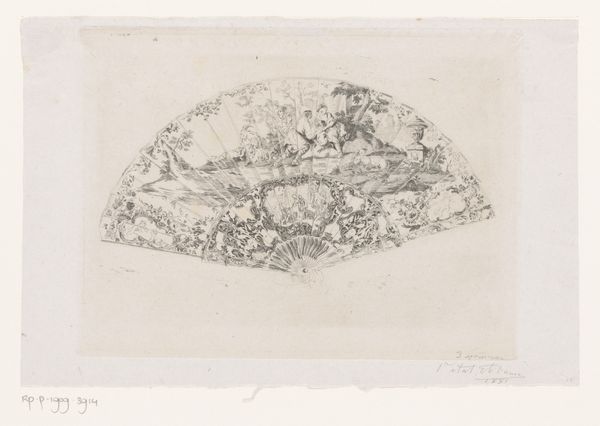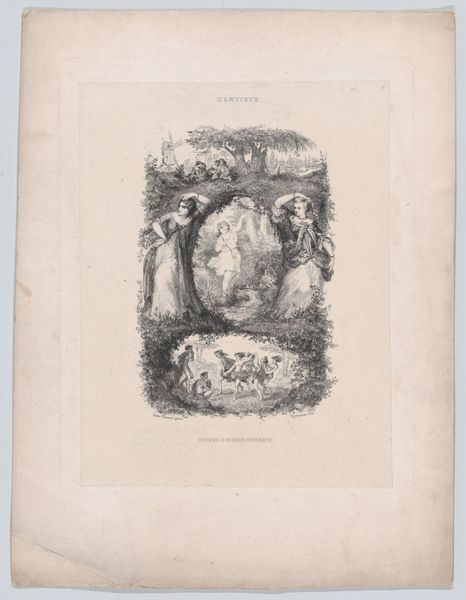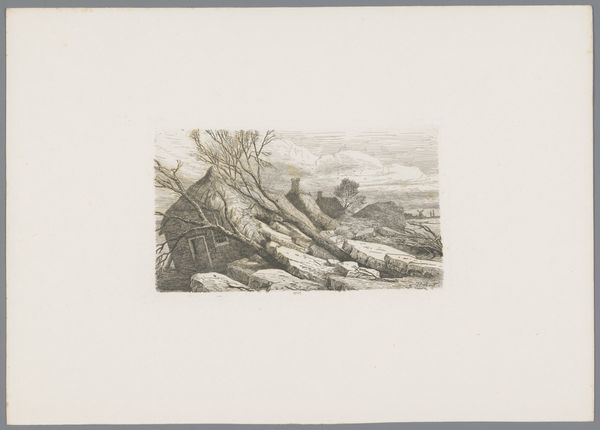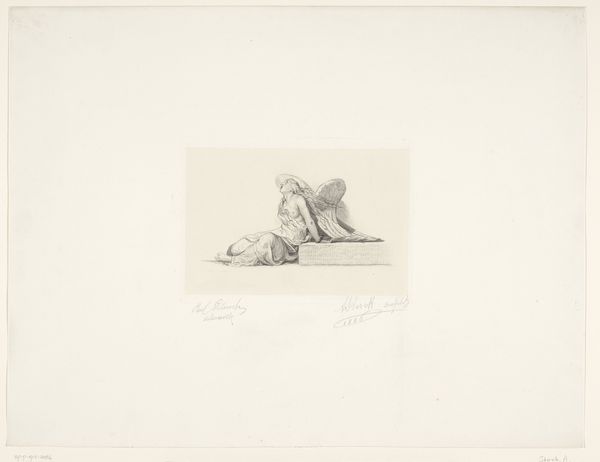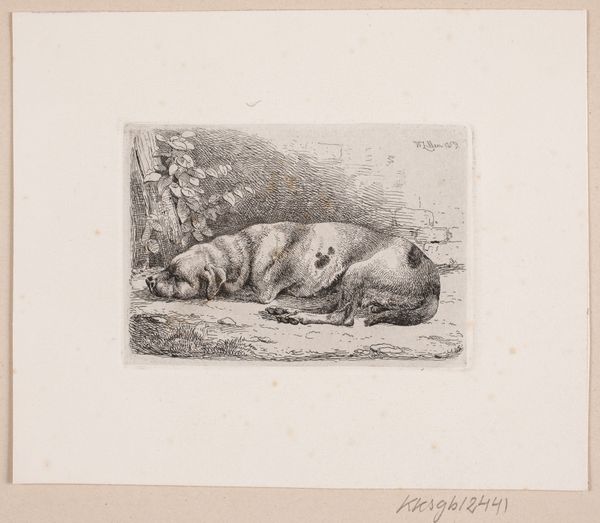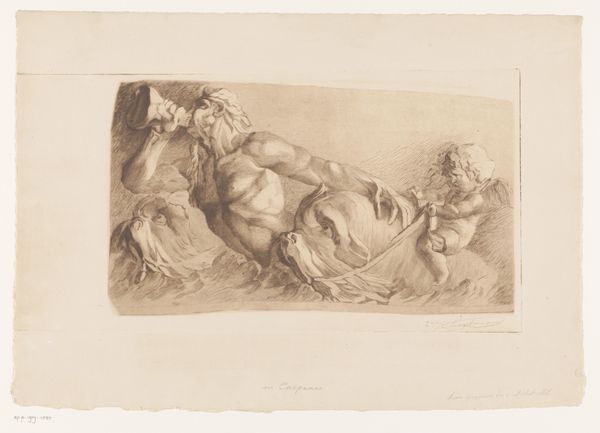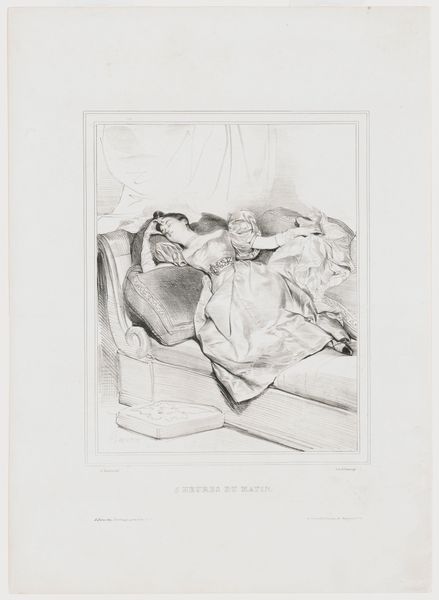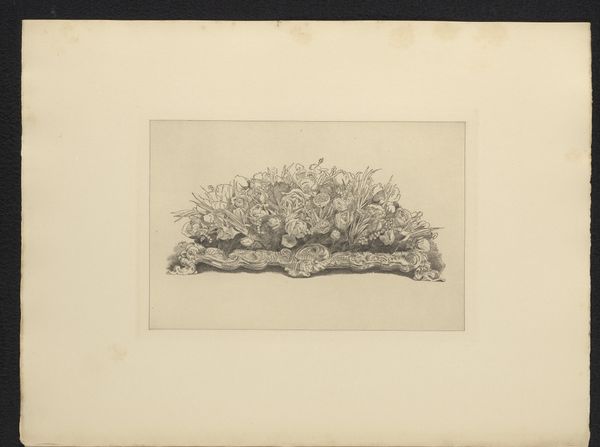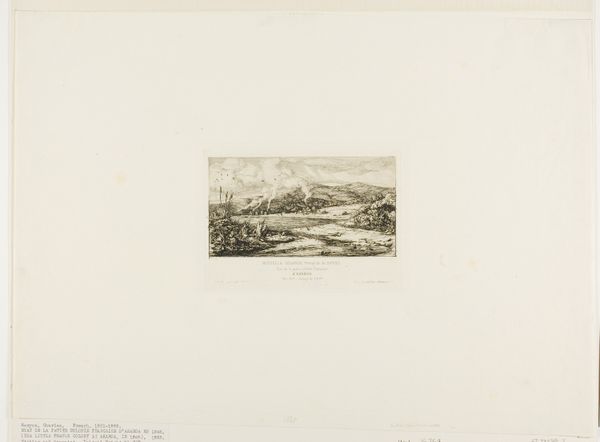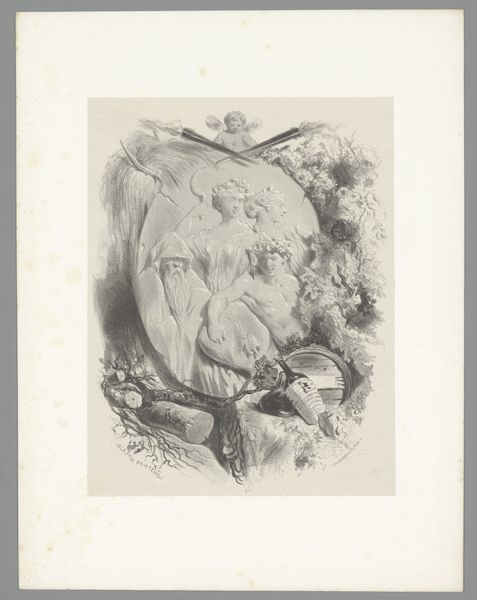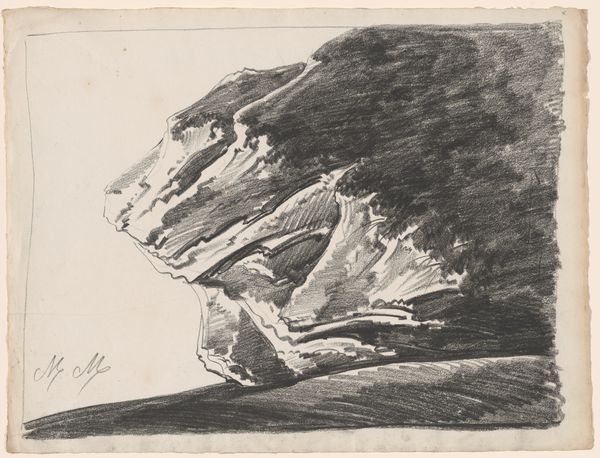
drawing, paper, graphite
#
portrait
#
drawing
#
neoclacissism
#
paper
#
graphite
#
academic-art
#
realism
Dimensions: height 368 mm, width 518 mm
Copyright: Rijks Museum: Open Domain
Editor: This graphite drawing, “Sculptuur van de dode Christus,” dating from the 19th century and created by Francesco Wenzel, immediately strikes me as incredibly somber, almost like a death mask. It feels incredibly studied and almost theatrical. What stands out to you in this piece? Curator: The “Sculpture of the Dead Christ” presents an interesting intersection of faith, politics, and artistic representation. The work adopts the Neoclassical style with realist tendencies, reminiscent of academic art traditions; in doing so it almost deifies death. Editor: Deifies death? That’s interesting. Curator: Consider that art of this kind gains popularity during immense sociopolitical turmoil; I find myself asking whether this highly polished and precise representation could also have a sociopolitical meaning. Given its creation during the rise of secularism, the piece might attempt to recast religious imagery to hold relevance. What do you make of that idea? Editor: That’s fascinating. So it's less about religious devotion, and more about art trying to stay relevant amidst changing times? It feels more like the appropriation of religious images to maintain visibility. Curator: Precisely. Artists navigated shifting societal values by recasting classical and religious subjects in new forms. Museums and galleries thus became stages where these visual and political dialogues unfolded, with artworks subtly negotiating between tradition and modernity. Editor: I’m beginning to see it that way, and that it says a lot about how the social climate informs how artwork gains attention, respect and becomes valued.
Comments
No comments
Be the first to comment and join the conversation on the ultimate creative platform.
